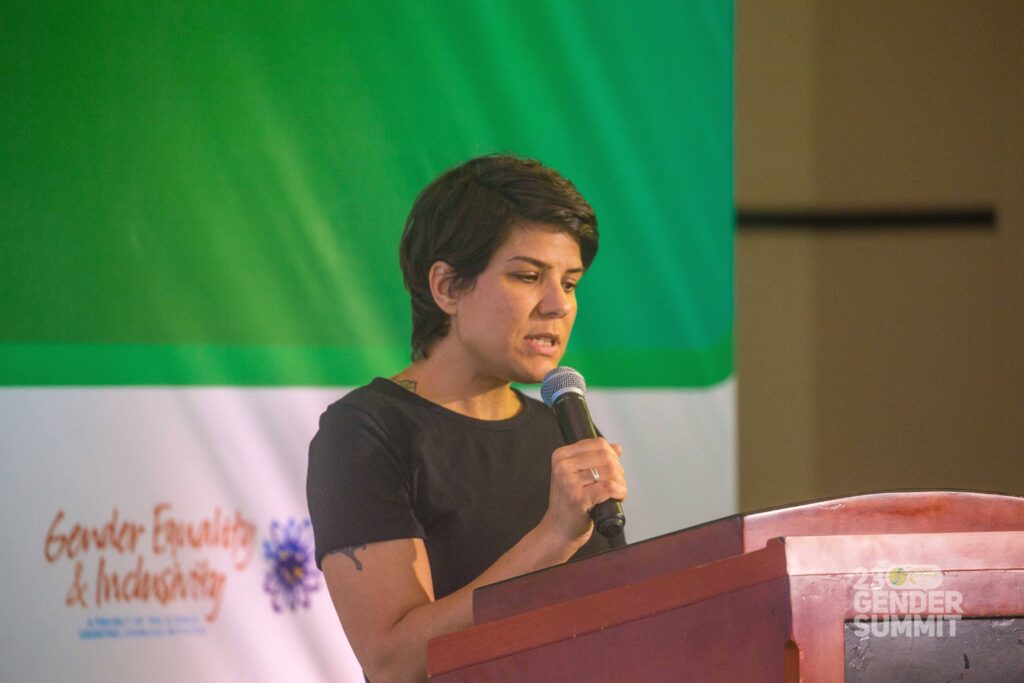SGCI News
Science granting councils in Sub-Saharan Africa should have strong policies to promote gender parity in science. 1. Gender – some legacy policies persist 2. A new approach is helping the…

Science granting councils in Sub-Saharan Africa should have strong policies to promote gender parity in science.
| 1. | Gender – some legacy policies persist |
| 2. | A new approach is helping the councils to revise the policies to aid gender parity in science |
| 3. | But it will require more time for the benefits to be realised |
[JOHANNESBURG] Stronger policies and deliberate actions are required to ensure gender parity in science, technology and innovation, scientists say at a gender meeting.
The Science Granting Councils Initiative (SGCI), which aims to contribute to scientific excellence, rigour and social relevance of research and development (R&D), held a learning summit on gender and inclusivity earlier this year in South Africa during which participating science councils identified how they could change context-specific gender and inclusivity priorities to make a difference.
“When we think about gender and inclusivity in science granting councils, we must acknowledge that when we started doing science, when we started doing research, [and] when we created granting councils, they were created primarily by men,” says Ingrid Lynch, Principal Investigator of the SGCI’s gender and inclusivity project, Human Sciences Research Council, South Africa.
“Moreover, some of that legacy still stands today.”
According to Lynch, the SGCI set up the gender and inclusivity project with a mandate to ensure women have a seat at the science table on the African continent.
“We have been working with science granting councils from 16 different African countries that are part of the initiative, and it is a participatory project,” Lynch explains.
Countries involved in the project include Burkina Faso, Côte d’Ivoire, Kenya, Malawi, Uganda, Zambia and Zimbabwe.
Cephas Mensah, deputy director in the Ministry of Environment, Science, Technology and Innovation in Ghana, says that the noticeable scant representation of women at upper levels of the science pipeline needs to be addressed.
According to Mensah this signals the need for a “conscious policy strategy” to sustain the participation of girls and women in science.
The second phase of SGCI’s gender and inclusivity project, which began in 2020, has led to up to 16 science grant-making councils addressing gender and inclusivity in their policies, says the project’s principal investigator Heidi van Rooyen.
“We have been working with the councils for these last two and a half years under challenging circumstances because COVID-19 threw some curveballs our way, and we needed to adapt and adjust,” explains van Rooyen, group executive officer at the Human Sciences Research Council’s Impact Centre.
“This learning summit now allows us to pause to reflect and celebrate with the council members what we have all been able to achieve.”
Madeleine Kennedy-Macfoy, executive director of Gender at Work, an organisation partnering with the SGCI to implement the gender project, emphasised the value of approaching issues from different perspectives to enable people to “think differently and imagine a difference, imagine a change”.
Oatumetse Olivia Seabe, a senior scientific officer in the Department of Research, Science and Technology in Botswana, says that a challenge facing gender projects is a lack of awareness.
“We have learnt and transformed as individuals, and we see the light in the councils,” she adds.
Hildegalda Mushi, a senior research officer with the Tanzania Commission for Science and Technology, cautions that while the struggle for gender equality is not a new thing, the project’s approach is a little different, and it would take time before everyone could get onto the same page before implementation.
Deborah Kasule, research head with the Uganda National Council for Science and Technology, explains that the emphasis on the learning methodology of accessing the “heart” and feelings provides insight into what ultimately influences the adoption and mainstreaming of policies.
The work being done in the project is deep-rooted and requires time, van Rooyen adds.
“If we have left councils feeling this is vital work and that they want to take some of those steps towards mainstreaming gender and inclusivity, then it has been worth our while,” she said.
This work was carried out with the aid of a grant from the International Development Research Centre, Ottawa, Canada. The views expressed herein do not necessarily represent those of IDRC or its Board of Governors.
Related News
Voices of SGCI: Council leaders on the direction and ambition of SGCI 3
At the African Union’s Science, Technology and Innovation Week in Addis Ababa, earlier this month, leaders of science granting councils reflected on what SGCI Phase 3 represents for Africa’s science and innovation systems. From ownership and alignment to stewardship and sustainability, here are their voices…
Building Africa’s science future: inside the SGCI alliance
As Phase 3 of the Science Granting Councils Initiative launches on the margins of the African Union Summit in Addis Ababa last week, the SGCI Alliance Chair explains why this moment marks a decisive turning point for African science. Cephas Adjei Mensah describes what is…
Open call: Support for science granting councils in Sub-Saharan Africa
The International Development Research Centre (IDRC), through the Science Granting Councils Initiative (SGCI), has launched a call for proposals to support science granting councils in Sub-Saharan Africa in the establishment and operationalisation of the Capacity Strengthening Hub under Phase III of the SGCI-3. The Hub…
SGCI funded projects
Rwanda’s integrated approach to sustainable agriculture and nutrition
Project Titles & Institution Areas of Research Number of Projects being funded Project Duration Grant Amount In-Kind Distribution Council Collaboration with other councils





